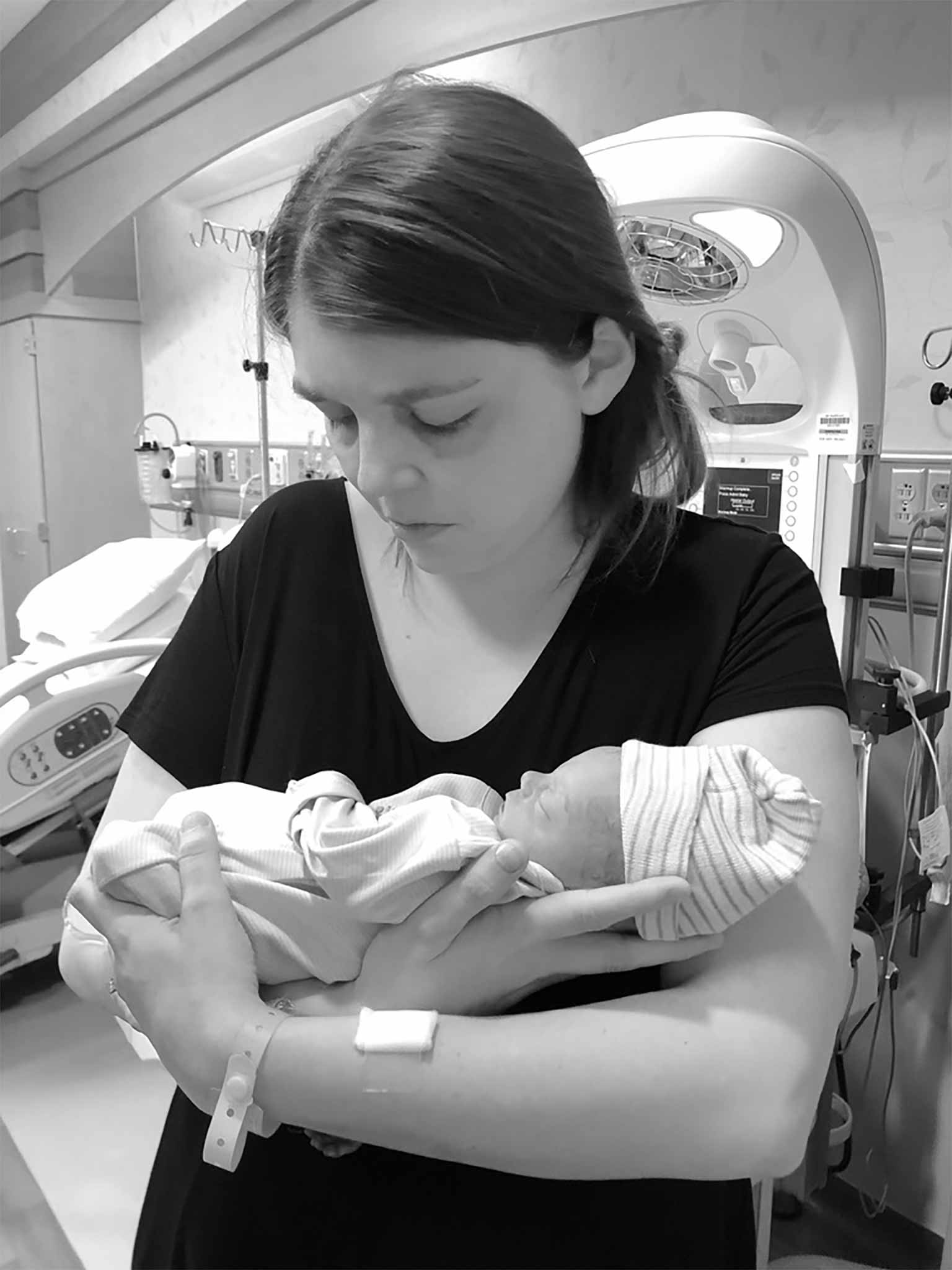Our Approach

1.8.21 – Meredith holding Ollie after their stillbirth
For grieving parents, we seek to set realistic expectations, normalize the experience, decrease isolation, and empower them to take back control of their loss.
Set birthing parents up for success in finding answers, from the moment of the loss.
Connect loss parents to experienced mental health providers immediately.
Recognize that perinatal loss is marked by both grief from child loss and almost always trauma. All therapeutic approaches require working on both grief and trauma.
Assist birthing parents, often mothers, in finding their tribe of other loss parents.
Create momentum to move forward from the early days of the loss to develop feelings of micro success and the passage of time.
Develop tangible, research backed skills for facing distress and anxiety that are inherent in child loss and pregnancy after loss. Specifically skills training in mindfulness, dialectical behavior therapy, cognitive behavioral therapy and grief/trauma trigger navigation.
Assist families in finding support for living children and spouses. The whole family is grieving and it is essential living children and non-birthing partners are not left behind.
A cornerstone of our therapeutic approach is encouraging birthing partners and their families to grieve openly and fully. To find those support people that can show up in the mess and sit with them in all of their grief. Grief deserves and demands to be seen and too often moving forward in perinatal loss is held up because this is not occuring.
We educate on traditional and alternative approaches to resolving loss related and birth trauma. We encourage loss parents try somatic approaches like massage, reiki, acupuncture, and somatic therapy that are often left behind when persuing traditional therapies.

2023 – pregnancy after stillbirth of Ollie
It is essential to investigate all causes of loss or adverse pregnancy outcomes associated with perinatal loss. Rather than only finding the most likely cause and then stopping further investigation. We look for ALL confounding factors.
Our recommendations for care, for a given finding, will be the standard of care while often going beyond or over and above the standard of care. We will always encourage thorough and informed discussion with a patient’s perinatal provider(s). If we believe the standard of care should be changed in an area, we will discuss why but still mention what the current standard of care is.
We will educate parents about what the current standard of care is with highlighted ACOG clinical guidelines and timely research. When necessary, these can be taken to their provider to enable them to “make the case” for interventions that are either standard of care or over and above. Empowering parents with cutting edge prenatal care research from across the globe and information in the context that they need it so they are prepared at the doctor’s office or hospital is a priority for us.
Proactive primary care management of birthing persons prior to conception is critical to optimizing the best outcomes for birthing person and baby. This includes stabilizing any pre-existing conditions, conducting routine screenings, offering adjunctive cancer, cardiovascular, and reproductive screenings to ensure our patients are in their optimal health prior to conception in pregnancy after loss.
